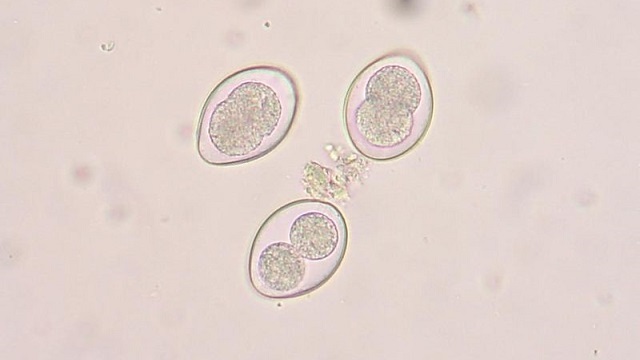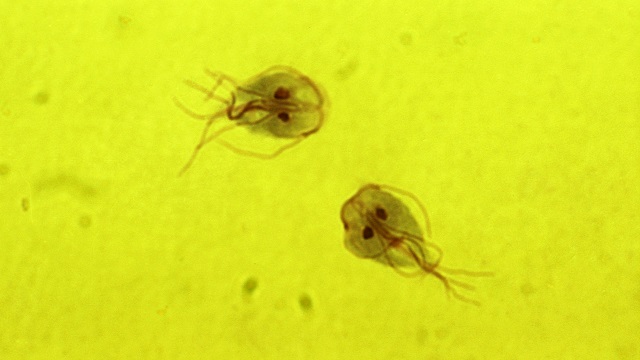We’ve recently refreshed your memory regarding intestinal worms. Now it’s time to dig a bit further and highlight the importance of two other quite common intestinal parasites in dogs and cats: Coccidia and Giardia.
They’re not worms but protozoa instead, and you won’t be able to identify them easily on your pet’s stool. So be aware – even if you don’t see them, it doesn’t mean they’re not there!
Can an infection be serious?

It might be serious, but usually only in puppies, kittens or immunosuppressed animals. Healthy adults usually do not show any signs of disease, and even when they do, it’s usually just a mild gastrointestinal upset. They do play an important role in shedding Coccidia spores and Giardia oocysts into the environment, though… Which are then accidentally swallowed by other pets, keeping the parasite cycle alive!
As you can imagine, besides the great outdoors, places like shelters, kennels, dog parks, daycares and catteries are the most risky. Your buddy can easily get infected, and the main issue is that regular dewormers are powerless against these parasites.
What’s the best approach, then?

Guess what? Prevention! It’s all about having high hygiene standards and getting your pet regularly tested. Of course, keeping a tidy and healthy environment is only achievable at your own place, as you cannot control public spaces. This is precisely why testing should not be neglected, even if there are no symptoms of disease and your pet’s stool looks fine.
So if you want to be one step ahead of these microscopic monsters, we suggest:
- Fecal testing 2 to 4 times during the animal’s first year of life;
- Fecal testing once or twice a year in adults;
- Promptly cleaning any surface that had contact with feces;
- Keeping the litter boxes tidy on a daily basis;
- Preventing stool-eating behaviour (we all know some dogs seem to find it tasty);
- Preventing your buddy from drinking from water puddles.
Regarding the treatment plan: both conditions usually require antibiotics that have to be prescribed by your vet after a hands-on exam. Depending on the severity of the signs, some gastrointestinal support may also be needed.
A closer look at Coccidia

There are a few types of coccidia, but Cystoisospora spp. is the most important one. Within this group there is also a variety of species that infects dogs, such as Cystoisospora canis, and Cystoisospora felis which infects cats. As most species are host-specific, there is usually no risk of cross contamination between dogs, cats and humans.
As mentioned before, you won’t be able to find coccidia in your buddy’s stool with just the naked eye. Special preparations of the fecal sample followed by a microscopic evaluation are required.
A closer look at Giardia

It has a worldwide distribution and affects most types of domestic and wild mammals, many birds, and people. Regarding our pets, it is one of the most common intestinal parasites in dogs and cats… Probably number one in dogs, and also responsible for a fair amount of gastrointestinal problems in cats.
Fortunately we just have to be aware of one species, Giardia duodenalis, even though it has plenty of subtypes. Another good news is that subtypes affecting dogs are different from those affecting cats and humans, and that is also true for our feline friends. That is why getting infected from our bestie is usually not a big concern.
To make things easier – or not, really – microscopically looking for this parasite is usually difficult and other approaches like ELISA or PCR stool testing must be performed.
Intestinal parasites in dogs and cats – conclusion

You probably already have the core word glued to your brain, and that is “prevention”! Following the deworming guidelines, keeping your home clean and shiny and adopting basic hygiene habits around your pet are some of the key points. Follow these simple steps and you’ll be one step closer to avoiding intestinal parasites in dogs and cats!
For any further assistance, you can always count on the Findster Care vet team, as well as your local vet!






